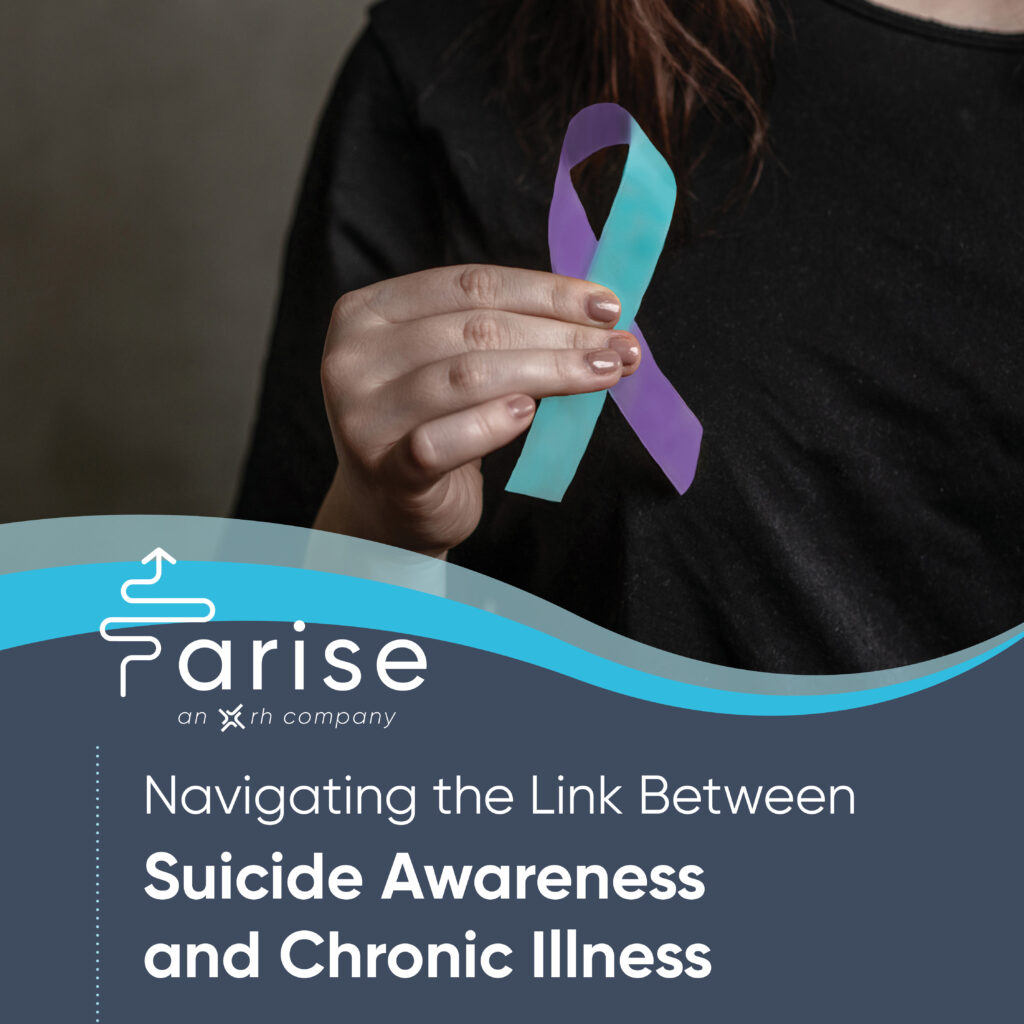In our journey to raise awareness about mental health, it’s essential to shed light on the often-unspoken connection between suicide awareness and chronic illnesses. While chronic conditions affect millions worldwide, the emotional toll they take on individuals can sometimes lead to heightened mental health struggles, including thoughts of suicide. In this blog post, we’ll delve into the complexities of this relationship, highlight risk factors, and offer insights on how we can collectively support those facing these challenges.
Living with a chronic illness can be an ongoing battle, both physically and emotionally. The daily hurdles, pain, and uncertainties can lead to feelings of hopelessness, isolation, and despair. It’s crucial to recognize that the mental toll of chronic illnesses is just as significant as the physical one, often resulting in mental health issues such as depression, anxiety, and, in some cases, suicidal thoughts.
Several factors contribute to the increased vulnerability to suicide among individuals dealing with chronic conditions. Prolonged pain, the loss of independence due to physical limitations, financial strains from medical expenses, and the impact of chronic symptoms on overall quality of life can all contribute to the heightened risk. The emotional burden of facing an uncertain future and the disruption of one’s identity due to illness further exacerbate these challenges.
In the face of these challenges, a strong support network is paramount. Family, friends, and healthcare providers play a pivotal role in recognizing signs of distress and offering a compassionate ear. Mental health professionals and therapists trained in chronic illness counseling can provide tailored strategies to cope with the emotional toll of ongoing health challenges. Engaging with peer support groups can also foster a sense of belonging and understanding, reminding individuals that they are not alone in their struggles.
Raising awareness about the link between chronic illness and suicide is a vital step in destigmatizing mental health discussions. By acknowledging that the emotional impact of chronic conditions is valid and real, we pave the way for open conversations and compassionate support. Organizations like Arise Psychiatry offer resources, groups, and support dedicated to helping those who are navigating the complex intersection of chronic illness and mental health.
Many individuals have found ways to manage their mental health alongside their physical conditions. Engaging in self-care practices, setting achievable goals, and seeking professional help when needed are all steps that can make a significant difference in navigating these challenges.
As we work towards a world that prioritizes mental health, it’s essential to acknowledge the unique challenges that individuals with chronic illnesses face. By fostering understanding, providing support, and encouraging open conversations, we can create an environment where those affected by chronic conditions feel empowered to reach out for help, share their experiences, and find the strength to navigate their journeys with resilience.
If you or someone you know is struggling with thoughts of suicide, reach out to a mental health professional or a helpline such as the 988, the National Suicide and Crisis Lifeline. Remember that seeking help is a sign of strength, and there are resources available to support you on your journey to mental well-being.

